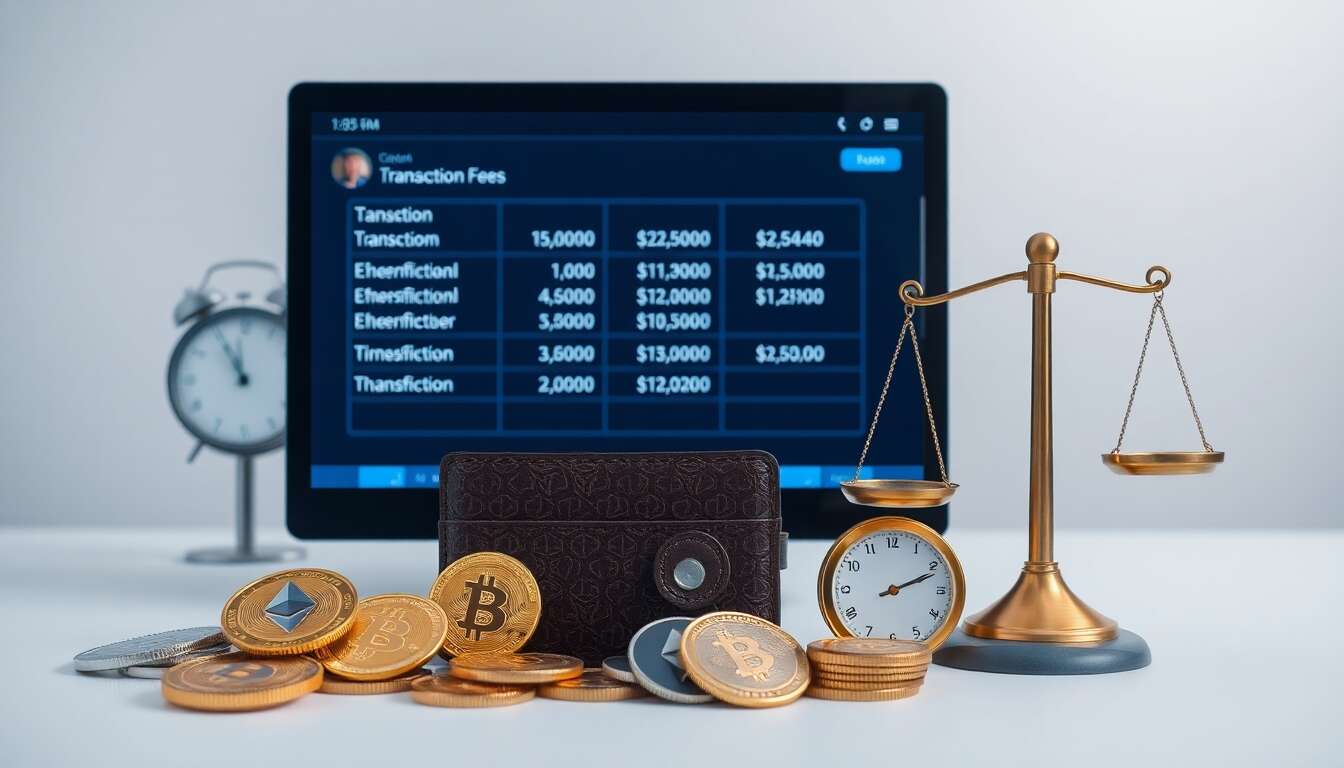In the rapidly evolving world of cryptocurrency, users face the critical decision of choosing the right digital currency. A pivotal aspect of this choice revolves around transaction fees and speed. As these factors significantly impact the user experience and the overall cost-effectiveness of transactions, understanding them is crucial for both newcomers and seasoned investors.
Definitions and Issues: fees vs. Speed
Defining Transaction Fees
Transaction fees in the cryptocurrency realm refer to the costs associated with processing and validating transactions on a blockchain. These fees are paid to miners or validators who ensure the security and integrity of the network. The fee amount can vary widely depending on the cryptocurrency and network congestion.
The Concept of Speed in Transactions
Speed, in the context of cryptocurrency transactions, is the time it takes to confirm and complete a transaction on the blockchain. This is often measured in minutes or seconds, depending on the efficiency of the network being used. Fast transaction speeds are essential for users who require near-instantaneous transfers or are involved in frequent trading activities.
Understanding these definitions sets the stage for a deeper exploration of how transaction fees and speed influence the choice of cryptocurrency.
Understanding Transaction Fees in Crypto

How Fees Are Calculated
Transaction fees are typically determined by several factors: the size of the transaction in bytes, the demand on the network, and the specific fee structure of the chosen cryptocurrency. As a general rule, a higher fee can expedite the confirmation of a transaction, especially during periods of high demand.
The Impact of Fees on Users
For users, high transaction fees can be a deterrent, especially for small transactions where the fee might outweigh the transaction amount. Conversely, lower fees can attract more users but may result in slower transaction confirmations. It’s a delicate balance that users must navigate.
- High fees can lead to increased costs for frequent traders.
- Low fees may cause delays during peak network usage.
- Some platforms offer fee structures that adjust dynamically based on network conditions.
With a grasp on transaction fees, attention shifts to the importance of transaction speed.
Speed of Transaction: how Important Is It ?

The Need for Speed in Crypto Transactions
In the fast-paced world of cryptocurrency, speed is of the essence. Whether for day trading, arbitrage, or immediate transfers, the ability to execute transactions quickly can be a significant advantage. Speed also contributes to user satisfaction, as long wait times can frustrate and deter potential users.
Consequences of Slow Transactions
Slow transaction speeds can have several adverse effects: they can lead to missed trading opportunities, increased exposure to price volatility, and a general loss of confidence in the currency’s utility. Therefore, many users prioritize speed when selecting a cryptocurrency.
With speed and fees clearly defined, it’s time to compare specific cryptocurrencies based on these criteria.
Comparison of Cryptocurrencies: fees and Speed
Analyzing Popular Cryptocurrencies
Various cryptocurrencies offer distinct balances between fees and speed. For instance, Bitcoin is known for its high security but relatively slow transaction speed and variable fees, especially during peak times. Ethereum offers faster transactions but can also experience high fees during network congestion.
| Cryptocurrency | Average Fee | Transaction Speed |
|---|---|---|
| Bitcoin | Variable (often high) | 10 minutes |
| Ethereum | Variable (can be high) | Seconds to minutes |
| Litecoin | Low | 2.5 minutes |
| Ripple | Very low | Seconds |
Choosing Based on Needs
For users prioritizing low fees, Litecoin and Ripple might be more appealing. Those who value speed may prefer Ripple or Ethereum, especially if they can afford the potential for higher fees.
With the comparison in mind, the next logical step is to consider how these factors influence the choice of a trading platform.
Choosing Your Platform: what Criteria to Prioritize ?

Factors to Consider
When selecting a platform, users should consider several factors: the platform’s reputation, security measures, fee structures, and the range of supported cryptocurrencies. Some platforms offer lower fees but may sacrifice speed, while others prioritize quick transactions at a higher cost.
Evaluating Platform Options
It’s crucial to evaluate platforms based on individual needs. For instance, a trader who requires frequent, fast transactions might choose a platform with higher fees but quicker speeds. Conversely, a casual investor might prioritize low fees over speed.
Understanding platform dynamics leads to informed decisions about optimizing cryptocurrency choices based on personal priorities.
Optimizing Your Choice Based on Your Priorities
Balancing Fees and Speed
To optimize the choice of cryptocurrency, users need to balance their priorities between fees and speed. This involves assessing their transaction habits and financial goals. Frequent traders might prioritize speed, while long-term holders might focus on minimizing fees.
Making Informed Decisions
Informed decisions require continuous research and adaptation to market changes. By staying informed, users can adjust their strategies to align with evolving network conditions and personal preferences.
Ultimately, understanding the nuances of fees and speed enables users to make strategic choices that align with their financial objectives and enhance their overall cryptocurrency experience.



